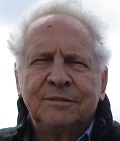 |
Vittore Casarosa graduated in Electronic Engineering at the University of Pisa and spent a few years at a research center of the Italian National Research Council, doing research on “Electronic Computers” (that center is today ISTI, the Institute for Science and Technology in Informatics). He then joined IBM, spending many years in the R&D laboratories of IBM in Italy, France and in the US, doing and managing research mostly in image processing and networking. Since 2000 he is Senior Research Associate of the Italian National Research Council at ISTI, where he is associated with the activities of the Multimedia Laboratory in the field of Digital Libraries; from 2000 to 2007 he has been Deputy Director of DELOS, the Network of Excellence on Digital Libraries. Vittore has been teaching at the University of Pisa (Department of Engineering), at the University of Parma (Department of Philosophy) and at the Open University of Bolzano (department of Computer Science). Presently he is teaching a course on Digital Libraries at the University of Pisa (department of Digital Humanities). |
 |
Angelo Mario del Grosso is a researcher at the Institute of Computational Linguistics “Antonio Zampolli” within the Italian National Research Council of Pisa (CNR-ILC). He holds a degree in Computer Engineering from the University of Pisa and earned his Ph.D. in Information Engineering in 2015. Del Grosso’s research focus lies within the field of Digital Humanities (DH), with a specific emphasis on creating Digital Scholarly Editions and applying computational analysis to historical-literary textual resources. He has published extensively within the DH field and actively contributes to various national and international research initiatives. His involvements include projects such as the “GreekIntoArabic ERC project”, “Saussure’s Manuscripts PRIN project”, “Italian Translation of Babylonian Talmud”, “Digital Edition of Bellini’s Letters”, and others. He is a member of the AIUCD board (Italian Association for DH – Associazione per l’Informatica Umanistica e la Cultura Digitale) and actively participates in the scientific boards of DH journals and conferences. Currently, he serves as the coordinator for the CNR-ILC unit in the ERC project 885222-GreekSchools, a project dedicated to editing Greek texts preserved in the carbonized papyri of Herculaneum. Additionally, he is a visiting scholar at the VeDPH Center of Excellence at Ca’ Foscari University in Venice and teaches Text Encoding at the University of Pisa. |
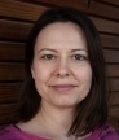 |
Francesca Frontini obtained a PhD the University of Pavia with a thesis on corpus linguistics; she was a postdoctoral researcher the Institute for Computational Linguistics in Pisa ILC-CNR), working on several European projects with a focus on computational lexicography and natural language processing. She was later associate professor at Université Paul-Valéry & CNRS in Montpellier, where she worked among other things on the MeDo project, contributing to the creation of a model for the representation and annotation of wastewater related facts and events, to be automatically extracted from texts. Today she is a Research Scientist at ILC-CNR and member of the Board of Directors of the European CLARIN ERIC infrastructure, as well as an ISO expert. Her research interests lie in Language Resources, Named Entity Recognition and textual analysis as well as linguistic knowledge representation. In addition, she has published extensively on issues relating to language resource documentation, preservation and standardization. |
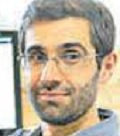 |
Tiago Gil is Associate Professor of History of the Americas in the Department of History at University of Brasilia, Brazil and coordinator of the Digital Atlas of Portuguese America. He holds a B.A. in History from Federal University of Rio Grande do Sul (2000) and M.A. (2003) and Ph.D. (2009) in Social History from the Federal University of Rio de Janeiro. He is the author of “Infiéis transgressores: elites e contrabandistas nas fronteiras do Rio Grande e do Rio Pardo, 1760-1810” (National Archive, Brazil, 2007), which won the 2005 Research Prize of the Brazilian National Archive. He also authored “Storici e informatica: l’uso dei database (1968-2013)” (in “Memoria e ricerca”), and “Taking speed seriously: motion, simultaneity, and context in map-making for historical analysis” (in “Cartography and Geographic Information Science”), among other articles, chapters and books. His research interests are HGIS, Digital History, Economic History and databases. |
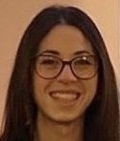 |
Elisabetta Magnanti is a University Assistant and Doctoral Candidate in the Department of History at the University of Vienna, where, as part of the Digital Humanities master’s program, she teaches courses on TEI-XML encoding and Computational Methods for Text Stemmatology. Her research specialises in early medieval England and in the application of computational methods to philological and historical analysis of Old English source material. Previously, she was Ingénieur d’études at the Department for Science and Information Technology at the CNRS in Paris. |
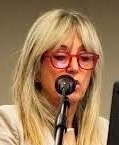 |
Monica Monachini is a Research Director at CNR-ILC and the head of LaRI, the Language Resources and Infrastructures group at ILC. She is also the national coordinator of CLARIN-IT, the Italian node of the CLARIN-ERIC European research infrastructure. Her research interests include language resources with emphasis on lexicons, ontologies, terminologies also including metadata, standards, models and formats for publishing Linguistic Linked Open data. She currently represents CNR in the UNI Terminology Committee and in the EOSC task force Community Engagement. She has participated and participates in many national and international INFRA-EOSC initiatives. She is a member of the PhD Board “Technologies and the Humanities” at the University of Macerata and carries out training Activities. |
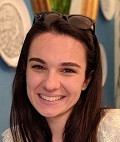 |
Giulia Pedonese is a Research Technologist at CNR-ILC working on the design of FAIR training materials to enhance the knowledge of CLARIN linguistic resources within the H2IOSC project. She obtained a PhD in Italian Studies at the University of Pisa with a thesis on Dante Alighieri’s language; she was a postdoctoral researcher at the Catholic University of the Sacred Heart of Milan where she contributed to the ERC project Lila-Linking Latin working on refining and extending the Latin Wordnet and the Latin Valency Lexicon; she was also involved in the linguistic annotation of other resources, such as UDante. The lexicographic data resulting from her PhD thesis were published as a LLOD resource called Dante Latin Loanwords and linked to the LiLa Knowledge Base. She contributed for five years to the lexicographic project called “Vocabolario Dantesco Latino” developed with the Crusca Academy. Her research interests lie in Language Resources, Digital Lexicography and Linguistic Annotation. |
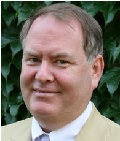 |
Seamus Ross is a Professor in the Faculty of Information at the University of Toronto, doing researches in the domains of digital curation/preservation, knowledge representation and reasoning, and automated genre classification. He served as Dean of the Faculty of Information from 2009 through 2015, Interim Director of the Marshall McLuhan Centre for Culture and Technology in 2015 and 2016, and Visiting Professor at the Athens University of Economics and Business (AUEB) in 2016 and 2017. Before joining Toronto, he was Professor and Founding Director of the Humanities Advanced Technology and Information Institute (HATII) (now Information Studies) at the University of Glasgow from 1997 through 2008 and Associate Director of the Digital Curation Centre in the U.K. (2004-2009). During his time at Glasgow his research benefitted from substantial funding from, among other funders, the European Commission for such projects as ERPANET (2001-2004), Digital Preservation Europe (DPE) (2006-2009), and Blogforever (2011 – 2013). His involvement with research into AI for knowledge representation began in the 1980s during his doctoral investigations in Archaeology at Oxford. It entailed an exploration into the application of knowledge-based systems for representing information and facilitating reasoning processes in the context of archaeological artifacts. During the past four years he has annually taught a graduate course on Human Values in Data Science which focus on investigating the moral and ethical challenges raised by AI and in particular machine learning (ML) in contemporary society. Since April 2023 he has been collaborating with colleagues at Toronto on a research project centred on “Writing For, Writing With, and Writing About AI” under the University of Toronto’s 2023 LEAF+ funding program on Generative AI in Teaching and Learning. |
 |
Roberto Rosselli Del Turco is an Associate Professor at the Università degli studi di Torino, Dipartimento di Studi Umanistici, where he teaches Germanic Philology, Old English language and literature, and Digital Philology. He has published widely in the Digital Humanities and Anglo-Saxon fields of study. He is the editor of the Digital Vercelli Book, an ongoing project that aims at providing a full edition of this important manuscript (manuscript facsimile and selected texts available at: http://www.collane.unito.it/oa/items/show/11). He is also co-director of the Visionary Cross project (http://vcg.isti.cnr.it/activities/visionarycross/), an international project aiming at producing an advanced multimedia edition of key Anglo-Saxon texts and monuments (beta version of the Ruthwell Cross: http://vcg.isti.cnr.it/cross/). He is the creator and project lead of Edition Visualization Technology (EVT), a software tool created at the University of Pisa to navigate and visualize digital editions based on the TEI XML encoding standard (http://evt.labcd.unipi.it/). |
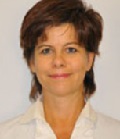 |
Enrica Salvatori is Associated Professor in the Department of Civilization and Knowledge of at the University of Pisa, where she teaches Medieval History, History of Late Ancient and Medieval Settlements and Digital Public History. Vice President of the degree course in Informatica Umanistica (Digital Humanities) at the same University from 2006 to 2010; Visiting Professor at the University P. Valéry (Montpellier, France) in 2006, 2008, 2011 and 2015; from 2015 to 2021 Director of the Laboratorio di Cultura Digitale (LabCD, Digital Culture Laboratory – http://labcd.humnet.unipi.it/) and now scientific manager of the Multimedial Service of the University of Pisa. Previously in the board of AIUCD (Italian Association of Digital Culture; 2015-2021), she is now in the board of AIPH (Italian Association of Public History 2017-..) and of PHW (Public History Weekly). Her research interests are focused on Medieval History and Digital Humanities, in mutual connection. Much of his work has been on the medieval Mediterranean circulation, the evolution of the municipality in Italy and Provence and the history of Lunigiana (northern Tuscany), as well as the study of the Digital Public History as a discipline. In particular, she has led since 2011 a research team on the history and archeology of the landscape in Val di Vara and Lunigiana (http://tramonti.labcd.unipi.it/) and since 2014 the digital edition of the Pelavicino Code (http://pelavicino.labcd.unipi.it/), structured as a Digital Public History project. |
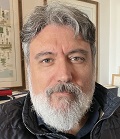 |
Salvatore Spina has been a research fellow at the Department of Humanities of the University of Catania, and presently is Ambassador for Italy at the Time Machine Organization (Austria) and Trainer for Transkribus (Austria). He has overseen the digital edition of the “Corrispondenza” section of the Biscari Archive (State Archive of Catania) by integrating computer tools into the project workflow, with a specific focus on artificial intelligence tools such as Transkribus and ChatGPT. He is the author of the handbook “Digital History: Computer Methodologies for Historical Research” (ESI editions) and has contributed several articles to prominent scholarly journals in the field. Through these publications, he actively engages in a discourse aimed at formulating the “digital” paradigm within the methodology of historical research. |
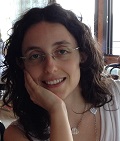 |
Rachele Sprugnoli is researcher at the University of Parma, member of the executive committee of AIUCD (the Italian association of Digital Humanities) and publicity co-chair of AILC (the Italian association of Computational Linguistics). She obtained her bachelor’s and master’s degrees in Humanities Computing at the University of Pisa and her PhD in Information Technology at the University of Trento. She worked at Fondazione Bruno Kessler in Trento and at the Catholic University of the Sacred Heart in Milan. Her research is mainly focused on linguistic annotation, evaluation of NLP tools and on how computational methods can be applied to the treatment of cultural content. |
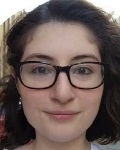 |
Irene Sucameli got her PhD in Computer Science in 2022 and now she is a fellow researcher at the Computational Linguistics Laboratory (CoLing Lab) of the University of Pisa. Her research interests are related to the domain of Natural Language Understanding, conversational agents, language models, and ethics in AI. |
–>

